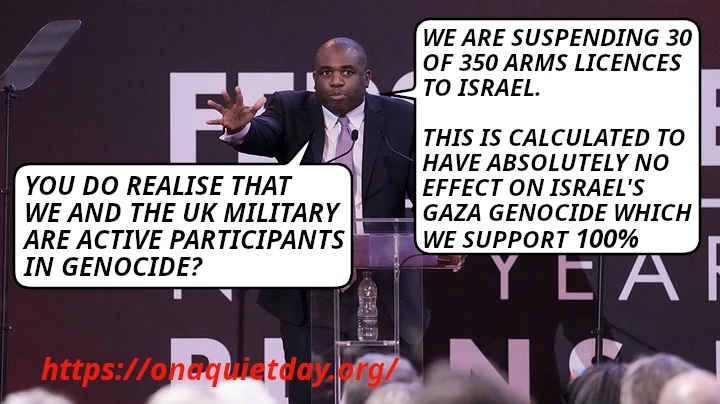Colonialism and imperialism endorsed at the UNSC
This work by Middle East Monitor is licensed under a Creative Commons Attribution-NonCommercial-ShareAlike 4.0 International License.

The UN Security Council Resolution 2803(2025) undermines all the purported purpose of maintaining peace and security. Talking about Gaza without including Gaza, the resolution intensifies the colonial efforts Israel intended through its genocide.
The international community’s rhetorical opposition to the US-Israeli alliance over the overt ethnic cleansing of Gaza through genocide and a US take over, has been dressed up as “The Comprehensive Plan to End the Gaza Conflict”, now endorsed by the UNSC.
The resolution itself is worded ambiguously – nothing new when it comes to international standards. However, Palestinians have suffered a genocide for two years during which all the issues debated and never agreed upon are now presented as relief. The ceasefire is mentioned without the genocide context, while the usual plans of humanitarian aid, rebuilding Gaza and the Palestinian Authority’s reform give a semblance of the earlier status quo with a twist – the US is granted complete control, in accordance with Israel’s colonial expansion plans. Amid all the vague statements, US supremacy in Gaza is plain to see.
“After the PA reform is faithfully carried out and Gaza redevelopment has advanced, the conditions may finally be in place for a credible pathway to Palestinian self-determination and statehood,” the UNSC resolution states. “The United States will establish a dialogue between Israel and the Palestinians to agree on a political horizon for peaceful and prosperous coexistence.”
READ: Israel allows only 1/3 of aid trucks into Gaza under ceasefire deal, authorities say
PA reform will never bode well as an international imposition. Already distanced from the Palestinian people, further reform will only bring the PA closer to the US-Israeli alliance, with complete endorsement by the international community. First a willing pawn for illusory state-building, the PA’s reform after genocide ushers in a new phase in which the PA is once again in control of both Gaza and the occupied West Bank. This simplistic perception not only ignores the fact that Hamas is still a formidable presence in Gaza, and even if the resistance movement loses support, the Palestinian people would still not opt for the PA. What the UNSC endorsed is a gradual elimination of Palestinians, if not their presence, their politics.
The EU endorsed the UNSC resolution and said it will “continue to engage closely with the UN and regional partners to support implementation in line with international law.” Even though international law has long absconded when it comes to Israel’s colonial expansion and genocide.
At this point, with Israel above international law and now determining its deterioration, how is the EU speaking about implementation? Since the genocide, words have become more elusive than ever. With Gaza’s visible destruction, the possibility of a Palestinian state diminishes, and the language of hypothesis looms higher. Participating in the US plan for Gaza brings more political actors under US and Israeli dominance. The UNSC endorsing the US plan gives President Donald Trump higher authority than the international community put together, which did nothing anyway to stop the genocide in Gaza. The more these games are played at the higher political echelons, the more Palestinians in Gaza will be in some way eliminated.
BLOG: The entire world is a showcase for Israel’s military might, not just defence exhibitions
The views expressed in this article belong to the author and do not necessarily reflect the editorial policy of Middle East Monitor.
This work by Middle East Monitor is licensed under a Creative Commons Attribution-NonCommercial-ShareAlike 4.0 International License.






 Palestinians inspect the ruins a day after an Israeli strike on a building in Gaza City, November 20, 2025
Palestinians inspect the ruins a day after an Israeli strike on a building in Gaza City, November 20, 2025


